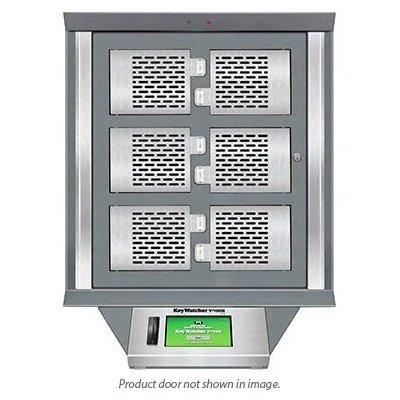 |
| LEGIC will demonstrate the use of TSM in loading access applications onto NFC telephones |
At Security Essen, along with Kaba, LEGIC Identsystems AG, the Swiss expert in core elements for contactless people identification, will demonstrate how access applications and rights can be loaded over a mobile network onto NFC telephones using a TSM.
NFC innovations are currently appearing in the specialised press every day, announcing how mobile telephones can be used as contactless chip cards. What was still an utopian ideal only a few years ago is now leading to increasing numbers of specific projects. Most of these announcements are for payment and electronic ticket applications. At Security Essen, Kaba and LEGIC will show how this new technology can also be used in the field of people identification.
Loading keys, applications and rights onto smartphones
In this context, LEGIC is presenting a new service, so-called Trusted Service Management (TSM). This new LEGIC service will enable end customers and the more than 250 LEGIC partners to load their applications on NFC-enabled mobile telephones. This allows access rights, for example for hotel room authorisations, and/or payment applications, changed or deleted over a mobile network. The new service supports – like the innovative LEGIC advant reader chip family – also third party RF technologies.
LEGIC: an ideal platform for NFC services
Particularly worth highlighting is that LEGIC reader components, and thus a large proportion of the reader infrastructure in the field, have been NFC-enabled for the last five years. The demonstrated LEGIC NFC solution virtualises a card and places all the usual card functions on a secure chip in the telephone. Thus LEGIC technology users will be able, for example, to combine their employee ID cards for several locations on a single handset. For example, using the well-known, user friendly LEGIC plug & play applications, little by little city cards can be expanded to include new NFC services without significant investments. Using NFC telephones doesn’t only make it possible to provide new services, but also to change the data content of individual applications.
Thus LEGIC technology users will be able, for example, to combine their employee ID cards for several locations on a single handset. |
Huge increases in administrative efficiency
“Just imagine, a technician is standing at a warehouse entrance and has to get in for an unplanned repair. With just two clicks in the administrative centre his smartphone is transformed into a temporary key”, Oliver Burke, LEGIC Vice President Corporate Projects, explained the potential of NFC technology. The result is not only increased convenience but also an immense process optimisation in administering access rights. Burke said: “Major companies presently spend large sums on temporary company ID cards. NFC can reduce this cost to a fraction.” A NFC-based system also increases security: “If a person loses the right to enter a building or specific room, his virtual access card can be withdrawn.”
Close cooperation with MNOs (Mobile Network Operators)
LEGIC is already working with a range of mobile network operators on people identification over NFC. “We are pleased by how positive mobile network operators have been. They see NFC-enabled LEGIC infrastructure as an opportunity to perform access control and other personal identification applications using NFC smartphones in the future,” said Burke.
Virtual cards increase flexibility
Unlike other solutions, the LEGIC NFC solution doesn’t need any hardware emulation and thus makes it possible for applications and rights to be stored not only on SECURE ELEMENTS (SE) and SD cards, but also to work on any preferred USIM, regardless of the manufacturer. “MNOs are pleased about this and it makes their life far easier,” explains Burke.
Demand for NFC
LEGIC has 150 million cards in over 100,000 installations in operation around the world and the demand from customers and partners to use smartphones as an alternative to cards is growing all the time. In many cases cards and NFC telephones will be used in parallel. On this topic Burke said: “We see it as our purpose to create an ecosystem for our partners and customers, which enables these plans. This ecosystem will continue to grow with the goal that any smartphone be used anywhere as a card or reader. There is still a great deal to do to achieve this goal, but the first steps in this direction and the positive experience we have had with MNOs make us very optimistic.”


















